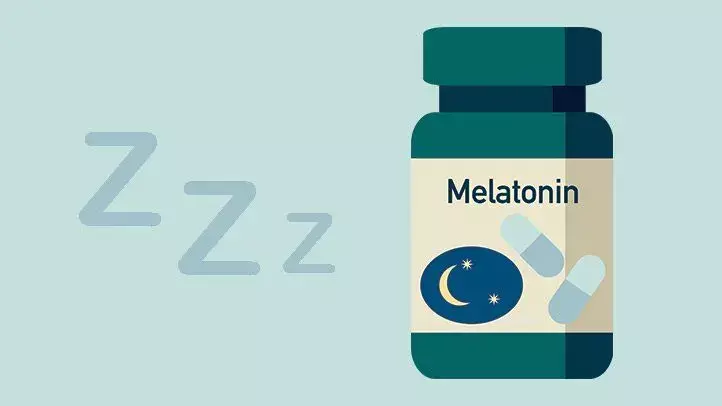- Home
- Medical news & Guidelines
- Anesthesiology
- Cardiology and CTVS
- Critical Care
- Dentistry
- Dermatology
- Diabetes and Endocrinology
- ENT
- Gastroenterology
- Medicine
- Nephrology
- Neurology
- Obstretics-Gynaecology
- Oncology
- Ophthalmology
- Orthopaedics
- Pediatrics-Neonatology
- Psychiatry
- Pulmonology
- Radiology
- Surgery
- Urology
- Laboratory Medicine
- Diet
- Nursing
- Paramedical
- Physiotherapy
- Health news
- Fact Check
- Bone Health Fact Check
- Brain Health Fact Check
- Cancer Related Fact Check
- Child Care Fact Check
- Dental and oral health fact check
- Diabetes and metabolic health fact check
- Diet and Nutrition Fact Check
- Eye and ENT Care Fact Check
- Fitness fact check
- Gut health fact check
- Heart health fact check
- Kidney health fact check
- Medical education fact check
- Men's health fact check
- Respiratory fact check
- Skin and hair care fact check
- Vaccine and Immunization fact check
- Women's health fact check
- AYUSH
- State News
- Andaman and Nicobar Islands
- Andhra Pradesh
- Arunachal Pradesh
- Assam
- Bihar
- Chandigarh
- Chattisgarh
- Dadra and Nagar Haveli
- Daman and Diu
- Delhi
- Goa
- Gujarat
- Haryana
- Himachal Pradesh
- Jammu & Kashmir
- Jharkhand
- Karnataka
- Kerala
- Ladakh
- Lakshadweep
- Madhya Pradesh
- Maharashtra
- Manipur
- Meghalaya
- Mizoram
- Nagaland
- Odisha
- Puducherry
- Punjab
- Rajasthan
- Sikkim
- Tamil Nadu
- Telangana
- Tripura
- Uttar Pradesh
- Uttrakhand
- West Bengal
- Medical Education
- Industry
Melatonin supplements improve objective sleep quality in Insomnia: Study

Melatonin was first described in 1958 by a dermatologist, Aaron Lerner, as a hormone produced by the pineal gland from the essential amino acid tryptophan (N-acetyl-5-methoxytryptamine). In humans, the primary physiological function of melatonin is to reinforce darkness- related behaviour, such as sleep propensity. A recent study published in the journal Sleep Medicine suggests Melatonin supplementation over a four-week period is effective and safe in improving some aspects of objective sleep quality.
Endogenous melatonin synthesis is finely regulated by visual light cues received by the hypothalamic suprachiasmatic nucleus in the brain, the site of the major circadian oscillator. At night when no light signals are received, melatonin synthesis and release occur with levels peaking in the early hours of the morning. Exogenous melatonin administration can be used to mimic the physiological functions of endogenous low-level melatonin. Recent reviews in the medical literature have demonstrated exogenous melatonin is safe with short term use, but evidence of its effects on secondary sleep disorders is of low quality. Researchers of Shanghai Jiao Tong University, China conducted a study to determine the efficacy of exogenous melatonin supplementation for sleep disturbances in patients with middle-aged primary insomnia.
It was randomized, double-blind, placebo-controlled parallel study. Researchers recruited participants from Tianlin community, Xuhui district, Shanghai. A total of 97 middle-aged patients with primary insomnia were randomly assigned to receive either 3 mg fast-release melatonin (n = 51) or placebo (n = 46) for four-weeks. Researchers tested the objective sleep parameters by overnight polysomnography. Subjective sleep performance and daytime somnolence obtained from the Pittsburgh Sleep Quality Index (PSQI). Insomnia Severity Index (ISI) and Epworth Sleepiness Scale (ESS) were obtained at baseline and after treatment. Patients underwent treatment daily 1 h before bedtime.
Upon analysis, they found melatonin supplementation significantly decreased early wake time [−30.63min] and percentage of N2 sleep [−7.07% ]. However, they found no significant effect on other objective sleep parameters including sleep latency, sleep efficiency, wake during the sleep and per cent of N1, N3 and REM sleep. They observed no effect of melatonin on insomnia symptoms and severity on the PSQI (1.53) ISI (0.81) and ESS (−0.83) and didn't report any adverse event.
The authors concluded, "Melatonin supplementation over a four-week period is effective and safe in improving some aspects of objective sleep quality such as total sleep time, percentage of rapid eye movement and early morning wake time in middle-aged patients with insomnia".
For further information:
Medical Dialogues Bureau consists of a team of passionate medical/scientific writers, led by doctors and healthcare researchers. Our team efforts to bring you updated and timely news about the important happenings of the medical and healthcare sector. Our editorial team can be reached at editorial@medicaldialogues.in.
Dr Kamal Kant Kohli-MBBS, DTCD- a chest specialist with more than 30 years of practice and a flair for writing clinical articles, Dr Kamal Kant Kohli joined Medical Dialogues as a Chief Editor of Medical News. Besides writing articles, as an editor, he proofreads and verifies all the medical content published on Medical Dialogues including those coming from journals, studies,medical conferences,guidelines etc. Email: drkohli@medicaldialogues.in. Contact no. 011-43720751


